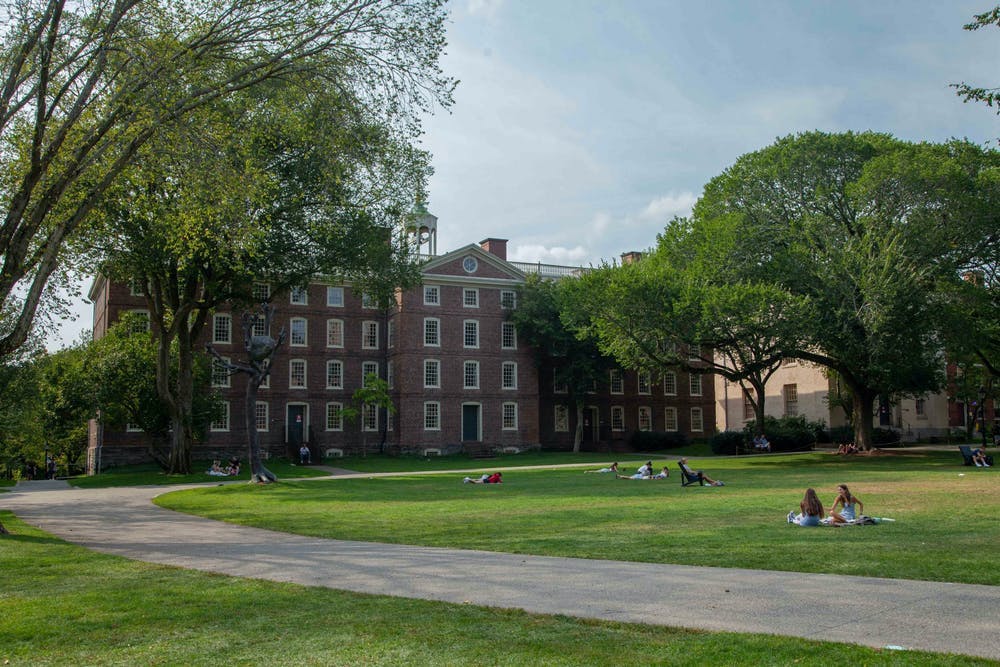The University established an official land acknowledgment statement recognizing the University’s location “on lands that are within the ancestral homelands of the Narragansett Indian Tribe,” President Christina Paxson P’19 wrote in a Today@Brown announcement May 24.
The statement, created as part of the institution's five commitments to understanding Brown’s relationship with Indigenous communities, was developed by the Land Acknowledgement Working Group announced last year, composed of six University students, faculty and staff members. LAWG was “responsible for developing recommendations as to how Brown can best acknowledge the land connected to local Indigenous Peoples and the University,” Paxson wrote in a March 2021 Today@Brown announcement.
The University’s five commitments are meant “to build a better understanding of the relationship between our campus community, the Indigenous peoples of this region and the land on which Brown is situated,” Paxson wrote in the May 24 announcement. They were adapted from recommendations crafted by LAWG, according to the University website.
Other commitments listed in the announcement include plans to “commission and support new original scholarship” regarding the University’s relationship to Indigenous peoples both in and surrounding southern New England, increase educational opportunities “for youth of the Narragansett Indian Tribe and other tribal youth from New England” and establish a residential program house for Native and Indigenous students, as well as those interested in Native and Indigenous studies.
According to the announcement, the University will establish a working group to organize resources in support of Narragansett and other tribal youth in fall 2022 and establish the residential program house in the 2022-23 academic year.
Paxson also listed a commitment to creating “a working group to work closely with the Narragansett Indian Tribe to explore how Brown can effectively honor and memorialize its College Hill location as part of the homeland of the Narragansett people.” University Spokesperson Brian Clark wrote in an email to The Herald that while “there is not a specific timeline established” for this commitment yet, “information on timeline or updates will be shared going forward.”
According to LAWG member Sherenté Harris ’23, prior to adopting an official land acknowledgment, some unofficial acknowledgments used by Brown students and organizations incorrectly listed non-Narragansett tribes as the Indigenous people of what is today College Hill.
“The Narragansett Tribe is the only state-recognized tribe in Rhode Island. We’re the only federally recognized tribe in Rhode Island,” Harris said. “So as a Narragansett student coming into Brown University, it was very disheartening hearing these land acknowledgments.”
While the Narragansett Tribe is the only tribe recognized by the state government, other tribes, such as the Seaconke Wampanoag Tribe, have petitioned in recent years for acknowledgment by the legislature. Narragansett leadership dispute other tribes’ claims to land in Rhode Island.
Harris said that incorrect land acknowledgments “treat indigenous people as some kind of homogenous group, so you can list as many tribal nations as you want in the region and not pay attention to our distinct differences.”
Once they were named a member of the working group, Harris communicated the urgency of passing a land acknowledgment to other members.
“As a Narragansett person myself, I emphasized repeatedly how important it was that we don’t have another class of students graduate from this institution with the misinformed idea that this land is anything but Narragansett land,” they said. “Or for some students, not even knowing that it’s Narragansett land at all.”

Neil Mehta was the editor-in-chief and president of the Brown Daily Herald's 134th editorial board. They study public health and statistics at Brown. Outside the office, you can find Neil baking and playing Tetris.





